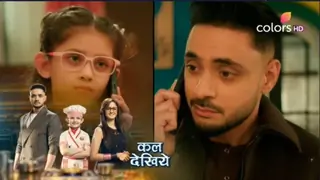Here it is also important to differentiate with the battle tactics in ancient India and in medieval India. Ancient India was different, and there is no doubt about that.
Despite whatever Chanakya says in Arthashastra ; the fact of the matter is - there are sufficient manuals written by Manu and many other contemporary thinkers / philosophers etc. which give a fine description of the war ethics of those times. If we are reading Chanakya, we have to read the others too and argue in a balanced manner.
Chanakya's is a special case & his writings can not be taken to generalize the tactics adopted by all the other kings. Also, we should remember that the writings of Chanakya are advisory in nature. It is not a niti sastra nor the dharma sastra to which all the kings or priestly class adhered by.
Even Chanakya favors to fight a war on honest lines before employing any treacherous tactics. I mentioned it in an update. {
Link} There are special cases & reasons for which he advocates treachery. Treachery is different and it should not be confused with ethical means. Harming women etc. on a systematic scale like done in medieval times was unheard of in BCE era - more so because they were themselves a part of the fighting forces. {
Link } And this is 4th century BCE ; the post Vedic age, the condition of women was not so bad.
Certain code of warfare was followed and the situation was not so gory as we imagine to be. We have medieval examples too. Krishnadeva Raya released the wife of the defeated Gajapati ruler who had fallen in his hands. The reason given was his following the code of warfare as given in the sastras.
Since most discussion revolves around Chanakya, it is important to note that, he spared all the captives of war after defeat of the Nanda ruler & ordered Chandragupta to free them. This is mentioned in Mudra Rakshasa. Looks impossible ? But one of the text says this.
A Buddhist (or Jain, i forgot) account says that Chanakya spared the life of the Nanda ruler and allowed him to go alive with his wife and with as much treasure he wanted to take at once to the forest to live in exile.
As i mentioned earlier, {
Link} the finest testimony of following ethics during a war in ancient India comes from the Greek ambassador Megasthenese who stayed in the court of Chandragupta Maurya, whereby he clearly expresses his surprise by saying - "while it is a common practice in all the nations of world to destroy the land of enemy and reduce it to uncultivable land during a war ; among the Indians, on the contrary the tillers of the soil who are regarded as sacred were treated inviolable. Even if the battle is raging in their neighborhood the combatants allow them to continue their work and they remain unmolested. Neither they destroy the enemy territory nor they put fire to it."
Megasthenese was surprised, probably, because prior to this experience he had seen the Greek form of warfare, which included total carnage and no adherence to any ethics in warfare. This makes him record this observation with a surprise. I have listed a massacre of Alexander in an old post on my thread whose link i shared above, when he was fighting against a Queen.
A glimpse of ethical warfare in ancient India is also found in the ancient Tamil epic called Silappadikaram. Members from the South, especially, must have read that epic. It mentions a case where members of the defeated army tried to escape the war field in disguise of ascetics / Brahman saints / war musicians etc. and they were not harmed by the victorious army. This is because the above mentioned category of people could not be harmed in a warfare according to the sastras. Still some of them were captured by Senguttuvan and brought to the monarch but he was reprimanded for having broken the code of warfare.





























